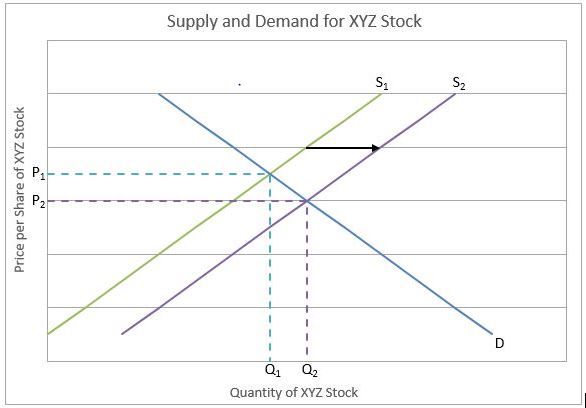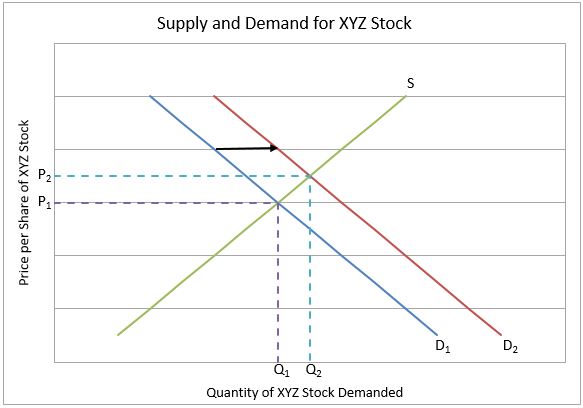Bear Market
View FREE Lessons!
Definition of a Bear Market:
A
bear market is
a market when the average share price decreases over an extended period, causing the market indexes to move lower.
Detailed Explanation:
Expectations of future profits drive stock prices. Assume a slowing economy results in lower profits, which triggers companies to lay off employees. People cut consumer spending because they have been laid off or are concerned their income will decrease. The cycle repeats itself. Investors want to sell their shares of stock because they are concerned future earnings will decline.
A bear market occurs when pessimists rule. During a bear market, most share prices on the stock market fall because more investors are interested in selling than buying. This results in falling share prices over an extended period. Bear markets are illustrated by a rightward shift in the supply curve because more shares are available for sale at every price, which decreases the market indices.

In contrast, a bull market occurs when optimists rule. Assume a growing economy has increased consumer demand. Companies are expanding to keep pace. Employment is rising. People feel confident and purchase items they have put off, such as a new house or car. Profits increase. The future is bright. Stock prices are rising, and the trend is expected to continue. This describes a bull market because there is an extended period of rising stock prices.
Stock prices are rising because buyers outnumber sellers, and the demand for stocks is increasing. Optimistic global outlooks or encouraging national economic news trigger buying. Usually, bull markets occur when the economy is growing, employment is rising, and inflation is in check.

A simple way to remember the terms “bull” and “bear” markets is to think of how bulls and bears fight. A bull thrusts upward with its horns, while a bear swipes downward with its paws.
It is important to note that the price of a specific stock may fall during a bull market or rise in a bear market, so it is still vital to acquire stocks using sound financial reasoning. Furthermore, a one-week decrease in the stock market due to discouraging news does not constitute a bear market. Nor does a short-term fall in prices during a bull market necessarily mark the beginning of a bear market.
Dig Deeper With These Free Lessons:
Capital – Financing Business Growth
Understand a Stock's Performance Using Supply and Demand
